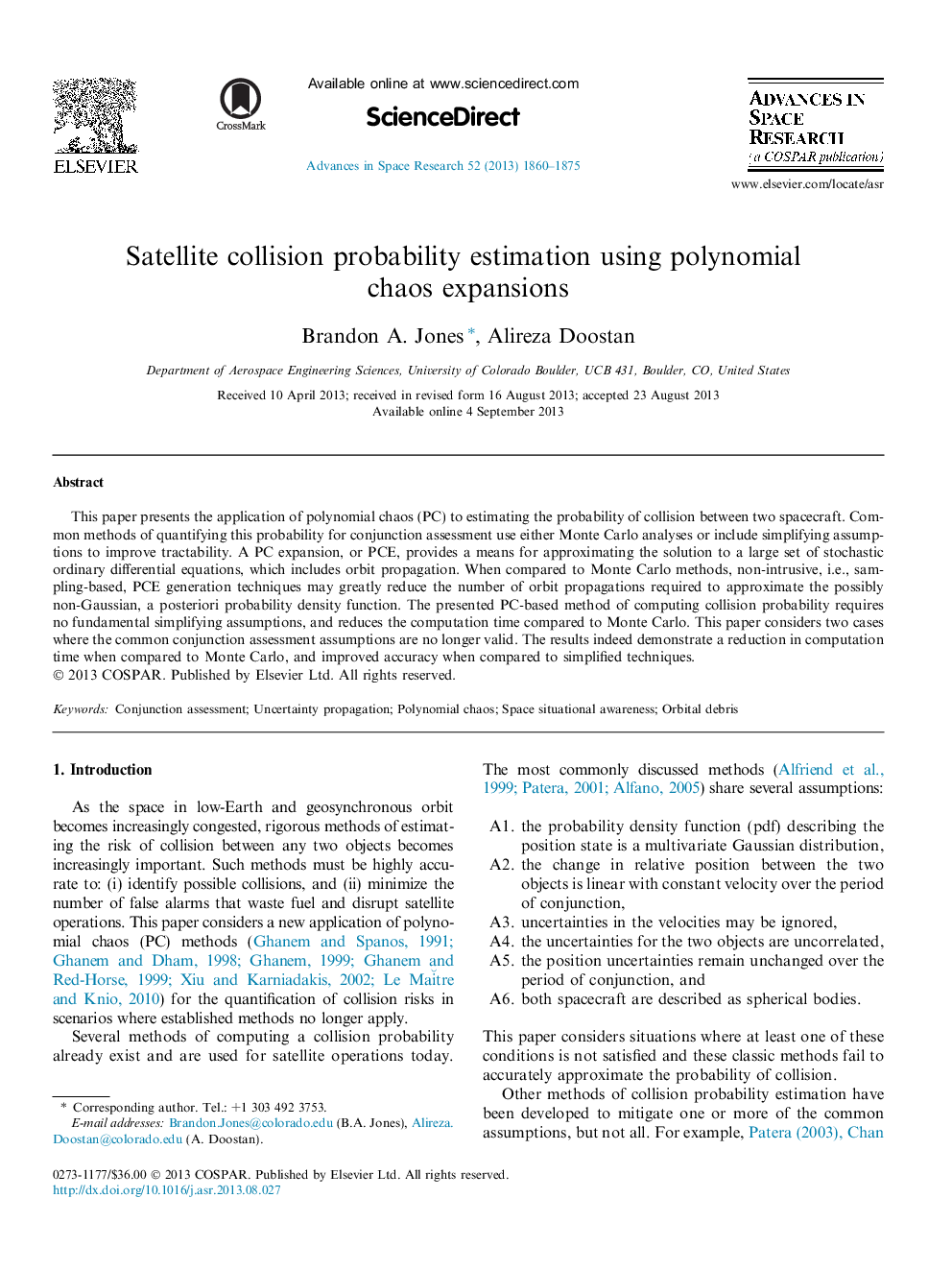| Article ID | Journal | Published Year | Pages | File Type |
|---|---|---|---|---|
| 1764088 | Advances in Space Research | 2013 | 16 Pages |
•Describes the use of polynomial chaos to quantify satellite collision and survival probabilities.•These methods improve accuracy and only include assumptions used in changeable design parameters.•Results demonstrate the need for significantly less computation time when compared to Monte Carlo.
This paper presents the application of polynomial chaos (PC) to estimating the probability of collision between two spacecraft. Common methods of quantifying this probability for conjunction assessment use either Monte Carlo analyses or include simplifying assumptions to improve tractability. A PC expansion, or PCE, provides a means for approximating the solution to a large set of stochastic ordinary differential equations, which includes orbit propagation. When compared to Monte Carlo methods, non-intrusive, i.e., sampling-based, PCE generation techniques may greatly reduce the number of orbit propagations required to approximate the possibly non-Gaussian, a posteriori probability density function. The presented PC-based method of computing collision probability requires no fundamental simplifying assumptions, and reduces the computation time compared to Monte Carlo. This paper considers two cases where the common conjunction assessment assumptions are no longer valid. The results indeed demonstrate a reduction in computation time when compared to Monte Carlo, and improved accuracy when compared to simplified techniques.
